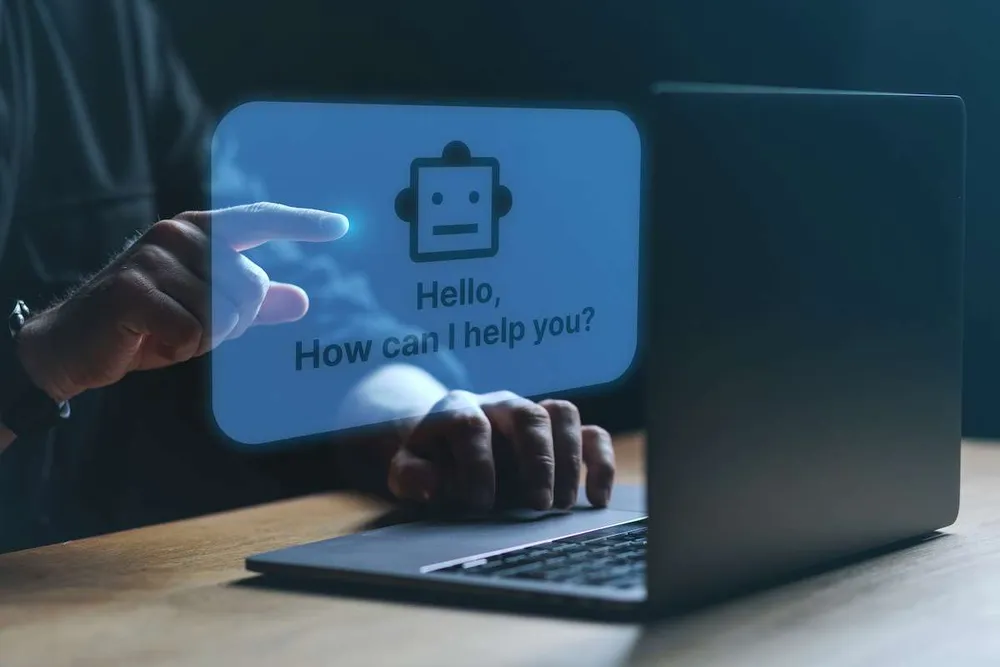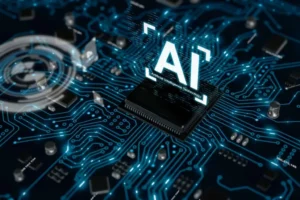The Essentials of AI Virtual Assistants and Their Functions

Not so long ago, when we talked about virtual assistants, we meant employees working remotely. But in 2025, this term has taken on a whole new meaning. Now, it’s all about artificial intelligence. AI has become the ultimate team member—always available and always ready to execute tasks without breaks or downtime. Industries like healthcare and e-commerce are rapidly adopting AI virtual assistants, making their operations more efficient than ever. Given its growing impact, it’s no surprise that the digital assistants market is projected to reach $60.83 billion by 2029. Today, we’ll take a closer look at this game-changing technology.
What is an AI Virtual Assistant?
It is a software that relies on artificial intelligence to perform tasks, answer questions, and assist users through voice or text interactions. Unlike human assistants, AI-powered ones operate 24/7 without breaks, continuously learning and improving based on user interactions. They can handle scheduling, customer support, data analysis, and even complex problem-solving, making them priceless in industries like healthcare, e-commerce, and finance.
Analytics and cognitive computing are at the heart of this technology. And when you add customer data, past conversations, location information, an organization’s knowledge base, and human insight, you can get a near-perfect AI.
However, of course, the question of the difference between AI agent vs AI assistant arises. The main distinction lies in how they work. Assistants respond to your commands and perform tasks as requested. Everyone knows systems with voice recognition like Alexa from Amazon, or Siri on Apple devices. They’re one example of how technology simplifies our lives.
Virtual agents, on the other hand, take a more independent approach. They actively work towards a goal and use whatever tools or methods they can to achieve it. For example, Claude from Anthropic even demonstrates how to use a computer. It can click, type, and control a computer.
Another area of confusion is chatbot vs virtual assistant. Primarily, customer service chatbots are typically best at handling straightforward tasks when assistants handle complex interactions.

We are confident that we have what it takes to help you get your platform from the idea throughout design and development phases, all the way to successful deployment in a production environment!
Benefits and Features of AI Assistants
Siri and Alexa really simplify routine tasks. They can remind you to take your medication, schedule an appointment, or help you find the song stuck in your head. But when it comes to business, these assistants go far beyond.
Work becomes more efficient
In many companies, these assistants are often called “co-pilots.” And it’s no wonder because the co-pilot can be entrusted with routine, repetitive tasks. It helps increase productivity by freeing employees to focus on more strategic and creative work. Many studies have shown that when you take away boring routine tasks from people (by delegating them to AI) and give them more freedom to run creative projects, employee enthusiasm and satisfaction increase.
You save every cent
You don’t have to hire many people and pay them for what a virtual assistant does. Automation leads to savings — it seems like the new rule. Businesses can save money and manage resources better while maintaining excellent service quality and reducing staff workload.
You are in touch with your customers every second
Technically, it won’t be you staying in touch—it will be your AI assistant. One of their best qualities is that AI assistants are available 24/7. This improves interaction because your clients get answers to their questions at any time.
Increasing loyalty requires the ability to provide reliable, uninterrupted service. It builds up consumer connections and trust. Therefore, when virtual assistants are included in social media and commercial applications, they create seamless cross-platform support.
Improving AI customer experience
Choosing an AI assistant means prioritizing prompt and accurate responses for your customers. This contributes to customer satisfaction, and the ongoing assistance improves the overall level of service quality. The result? Higher loyalty and retention. Being ready to help at any time ensures that brands are always available, making a positive and lasting impact on customers.

Applications of AI Virtual Assistants
The market offers many different types of assistants, all designed to perform various tasks. However, it is worth choosing a program for a specific use case rather than a one-size-fits-all solution.
Customer service
Such assistants play a key role in customer support by handling queries. Here are some of their functions:
- They provide instant answers to common questions to reduce the workload on customer service teams.
- They also offer self-service options, helping customers access helpful information, such as setting up a move or opening an account.
- Some AI assistants support human agents by displaying useful data and connecting them to the most relevant resources when needed.
Overall, such assistants, especially in the form of conversational AI, allow companies to save up to 2.5 billion hours of customer service representatives’ work per year.
Sales
Just like customer service chatbots, AI sales assistants perform similar functions. You may place them on the checkout page to answer potential buyers’ questions, such as shipping information or delivery times, right before they make a purchase. The feature also helps sales reps by providing timely information during the interaction.
Generative AI (GenAI) serves as a powerful and reliable virtual assistant. 69% of organizations believe that GenAI helps humanize digital customer interactions.
OpenAI ChatGPT helps you create sales content in seconds. Suppose you need to prepare a product description or a promotional post for social media instead of spending hours creating text. In that case, you may simply write down the main points, and the AI will quickly generate several options.
Help consumers
Most people are familiar with voice-managed AI assistants. If you’ve ever asked Siri or Alexa to turn on the lights or check the weather, you’ve used this type of assistant. They are designed to help with everyday tasks and are a popular choice for personal use.
Virtual Assistants Across Industries
Machine learning virtual assistants have entered many areas of our lives. When it comes to healthcare, a virtual assistant quickly summarizes symptoms and medical information. Nurses also rely on them for instant guidance, whether it’s providing home care advice or directing patients to the appropriate medical services. It means less waiting and faster, more accurate treatment when needed.
Insurance companies will benefit, too. If you’ve ever had an insurance question, you know how many processes are initiated. Instead of waiting for an agent, an assistant quickly calculates your potential premiums based on your age, health, and occupation, giving you answers almost instantly. It helps agents work faster and ensures customers get the information they need without waiting.
Utilities are another area where AI assistants are working wonders. Imagine coming home to a gas leak. In a crisis situation like this, an assistant gives you immediate safety advice and even connects you with emergency services. Field technicians also use the assistants in real time to get help with troubleshooting.
So, the technologies speed up processes by giving people the answers they need when they matter. Overall, they amp up the experience for clients and agents. It’s all about making everything smoother, faster, and smarter.
The Future of AI Assistants
AI assistants advance quickly, with new features and abilities being added constantly. Thanks to better speech analytics and NLP algorithms, they’re becoming more skilled at understanding and responding to users’ needs. As voice tech keeps improving, we expect the assistants to be more embedded in business processes.
In the long run, they’ll feel even more human-like and offer a more personalized experience. However, with these advancements come growing concerns about privacy and security. Businesses are being urged to be clear and open about how they handle these issues to build trust with users. Looking ahead, AI assistants might even play a role in the metaverse as companies explore new ways to bring them into virtual spaces.
Final Words
The AI-powered personal assistant market is growing rapidly. The market is expected to reach $242.30 billion by 2030, representing a compound annual growth rate (CAGR) of 17.3%.
Things are changing fast, so it’s important to stay on top of the latest trends. Global Cloud Team is here to offer specialized AI software development services. With a team of over 200 professionals across four global offices, we deliver customized AI solutions tailored to your business’ diverse needs.
Partnering with the Global Cloud Team significantly improves your business’ efficiency and customer engagement. As the demand for AI virtual assistants continues to grow, partnering with experienced developers like Global Cloud Team is key for companies.
Top Articles
Container vs VM (Virtual Machines): How Do They Differ?
I am here to help you!
Explore the possibility to hire a dedicated R&D team that helps your company to scale product development.






